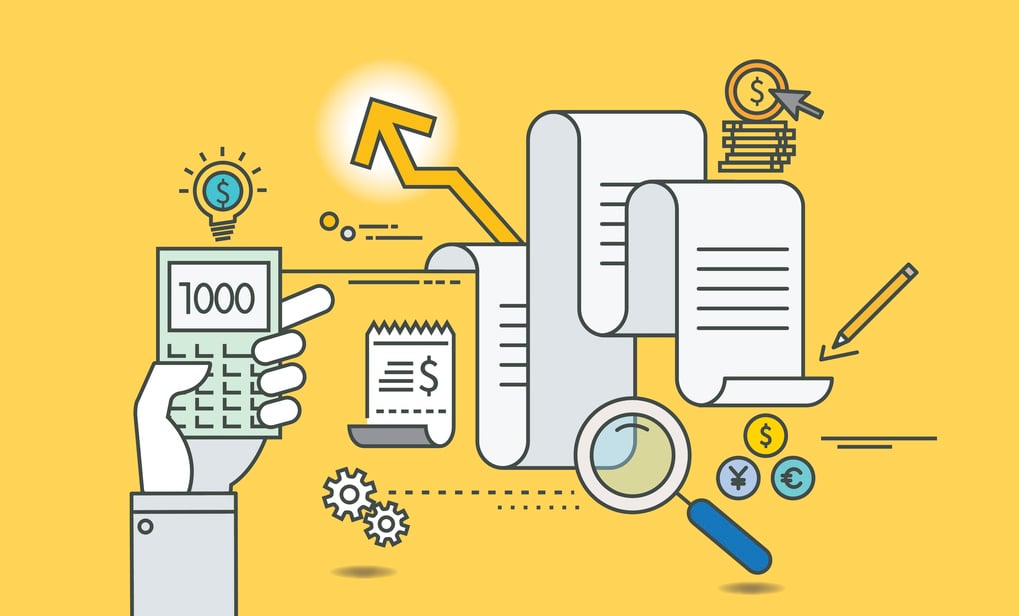President Donald Trump has signed a tax overhaul and companiesare rejoicing. But the most immediate effect of the new law couldbe a one-time accounting headache.
|Hours after the bill signing, announcements started to roll infrom some of the world's biggest companies—with some spectacularnumbers. While the bill benefits most companies through a lowerrate, it also requires them to recalculate some of the taxpositions they may have been holding on their books for years.
|Biotechnology company Amgen said it would take a $6 billion to$6.5 billion charge. Bank of America plans to take a $3 billionhit, and Credit Suisse Group will take a write-down of 2.3 billionSwiss francs ($2.32 billion).
|The one-time changes are related mostly to what are known asdeferred tax assets that accumulate on balance sheets whencompanies overpay taxes or take tax losses. On the other side ofthe ledger, deferred tax liabilities pile up when they've underpaidtaxes on depreciated assets.
|The tax law lowers the corporate rate from 35 percent to 21percent, and in the long run, most companies will benefit. Butwith that sharp cut, the Republican tax makeover scrambles the matharound the tax instruments, meaning some companies will postsignificant one-time gains or losses as they bring their books intoharmony with the new code by year-end.
|Experts said investors are largely aware of the rule, but itcould cause some confusion in the stock market as the numbers dropor when earnings reports emerge. For one thing, institutionalmemory may be lacking—the rule only has real impact when corporaterates are cut sharply, and the last time that happened was threedecades ago.
|“People might be confused, but the sophisticated people will say'don't worry about it, it's a one-time thing,' ” said MartySullivan, chief economist at Tax Analysts.
|Among the companies that could see the biggest changes are banksthat suffered steep losses during and after the 2008 financialcrisis. Citigroup Inc. executives, for example, said in a call thismonth that the lender expects to take a noncash charge tofourth-quarter earnings of about $20 billion, mostly as a result ofwriting down its tax assets.
|“All the sudden, the jerk in accounting says you have to drop abillion-dollar loss, so you have to report a negative toshareholders,” Sullivan said. “In any other situation, that wouldbe cataclysmic.”
|More to Come
Credit-card company American Express has net deferred tax assetsof $2.3 billion. CEO Ken Chenault said this month that while thecompany will take a one-time hit, “the long-term benefits, for theeconomy, for our company, for our shareholders, over the years,will be very substantial.”
|For companies with net deferred tax liabilities, things lookdifferent. With the cut in rates, any unpaid tax bills won't be aslarge—and that means a boost to the bottom line.
|“Let's say you have credit card debt,” said Robert Willens, atax adviser to hedge fund managers. “It'd be the same if someonesaid you didn't have to pay that debt.”
|Airplane maker Boeing, for example, has net liabilities of $1billion and will see a one-time gain of about $400 million,according to a Bloomberg analysis.
|Boeing declined to comment on the estimate and hadn't issued anestimate of any charge or benefit as of Friday afternoon.
|Indeed, many of the largest companies in the U.S. stand to get anice bump. A Bloomberg analysis of the 30 companies listed on theDow Jones Industrial Average found that two-thirds will likelyreport a one-time earnings gain in the fourth quarter, while theother third will likely report a one-time charge.
|Because companies don't report which tax assets and liabilitiesare foreign and which are domestic, it's hard to say what the exactgain or loss companies will face unless they report it. Butexecutives have alluded to the write-downs on conference calls.
|Another factor that will play out will be the tax law's levy onprofits held overseas. Companies stand to lose from part of thebill that requires them to bring back their foreign earnings andpay a one-time tax—15.5 percent for cash and 8 percent for noncashassets —in exchange for a 100 percent exemption on most foreigndividends.
|That means JPMorgan Chase & Co., which would gain fromwriting down its deferred tax liabilities, will instead take aone-time hit when it brings its earnings back to the U.S. CFOMarianne Lake said in a conference call this month that thefinancial-services giant could lose as much as $2 billion.
|Companies have to account for the tax bill's changes in theperiod it was enacted, which means the pressure is on for corporateaccounting departments.
|“It's like going to the airport to go to China in five minutes,and you haven't packed yet,” Sullivan said. “You might be able topack a few things, but you're not going to make it. They're goingto be screwed.”
|From: Bloomberg
|Copyright 2018 Bloomberg. All rightsreserved. This material may not be published, broadcast, rewritten,or redistributed.
Complete your profile to continue reading and get FREE access to Treasury & Risk, part of your ALM digital membership.
Your access to unlimited Treasury & Risk content isn’t changing.
Once you are an ALM digital member, you’ll receive:
- Critical Treasury & Risk information including in-depth analysis of treasury and finance best practices, case studies with corporate innovators, informative newsletters, educational webcasts and videos, and resources from industry leaders.
- Exclusive discounts on ALM and Treasury & Risk events.
- Access to other award-winning ALM websites including PropertyCasualty360.com and Law.com.
*May exclude premium content
Already have an account? Sign In
© 2024 ALM Global, LLC, All Rights Reserved. Request academic re-use from www.copyright.com. All other uses, submit a request to [email protected]. For more information visit Asset & Logo Licensing.







